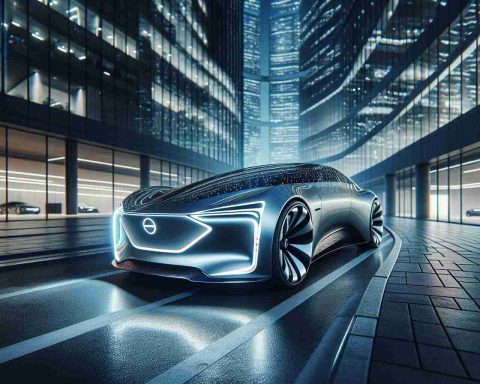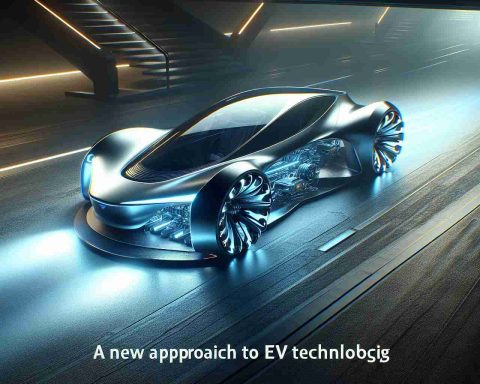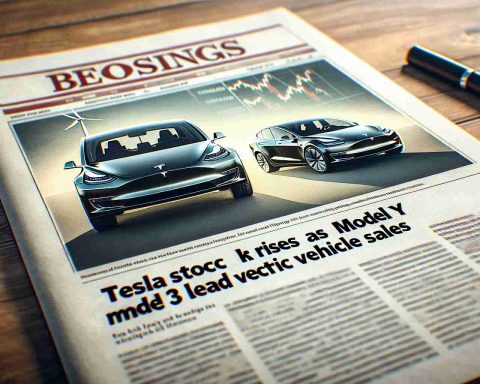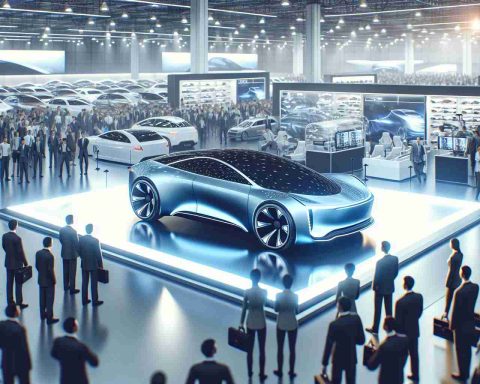Nissan is set to revolutionize its Canton facility, aiming to launch a Nissan Intelligent Factory by 2028. This transformation indicates significant changes ahead in Mississippi’s automotive landscape, particularly concerning the manufacturing of electric vehicles.
In 2022, the company revealed plans for a $500 million investment aimed at producing a new electric vehicle lineup from the Canton plant, originally slated for 2025. However, reports suggest that the rollout is now delayed. According to Nissan’s senior manager, the Canton facility will transition to a high-tech manufacturing site capable of supporting five advanced electric models by 2028.
Despite fears of job reductions in the area, the company asserts that no layoffs from this transition will occur. Instead, the focus will be on advanced technology and training programs for existing workers to enhance their skills for the new production processes.
However, skepticism remains as earlier technological advancements in Japan showcased highly automated environments, where robots perform tasks such as painting and inspecting vehicles with minimal human intervention.
Local economic leaders acknowledge the uncertainty surrounding the automotive industry’s future, particularly as Nissan anticipates producing fewer vehicles in the upcoming fiscal year. Amid rumors of a potential merger with Honda, the overall impact on employment and production remains to be seen. As discussions advance, the community watches closely, hopeful for positive developments.
Future Implications of Nissan’s Intelligent Factory Initiative
Nissan’s ambitious plan to establish an Intelligent Factory in Canton, Mississippi, not only heralds a technological shift but also poses profound implications for the local community and beyond. As the automotive industry leans more heavily into electric vehicle (EV) production, this transformation could serve as a bellwether for the future of American manufacturing in the context of sustainable mobility.
With the expected rollout of advanced EV models, Mississippi may position itself as a critical player in the global electric vehicle market, which is projected to grow exponentially, with analysts forecasting growth to surpass $800 billion by 2027. The Canton facility’s pivot toward cutting-edge technology signals a necessary evolution toward more environmentally friendly manufacturing practices, aligning with global trends emphasizing sustainability.
This shift is expected to impact employment, with a focus on upskilling the current workforce rather than layoffs. Training programs will equip workers with the necessary skills to thrive in a high-tech setting, ultimately fostering a more adept labor market. As other manufacturers scrutinize Nissan’s approach, such initiatives may pave the way for broader adoption of similar models across the industry.
In terms of environmental impact, the transition from traditional to electric manufacturing could significantly reduce carbon emissions associated with vehicle production. This evolution reflects a greater societal commitment to addressing climate challenges. Furthermore, as economists contemplate the ripple effects on the local economy, continued investment in electric vehicle infrastructure might stimulate associated sectors, from battery production to charging station installations, amplifying the region’s role in the clean energy revolution.
As Nissan forges ahead, the automotive landscape is bound to change. Communities will need to adapt, and the success of this transformation will likely resonate far beyond Mississippi, influencing global supply chains and setting a precedent for sustainable industrial practices worldwide.
Nissan’s Intelligent Factory: The Future of Electric Vehicle Production in Mississippi
Nissan is taking bold steps to transform its Canton, Mississippi facility into a Nissan Intelligent Factory by 2028, a project that promises to reshape the automotive manufacturing landscape in the region. The company is set to invest $500 million into this initiative, positioning the Canton plant as a hub for electric vehicle (EV) production.
Investment and Production Plans
Initially, Nissan announced that this investment would lead to the production of a new electric vehicle lineup slated for a 2025 rollout. However, recent reports indicate that the launch has been postponed, with the Canton facility now expected to manufacture five advanced electric vehicle models by 2028. This transition underscores Nissan’s commitment to EV technology and aligns with global trends towards sustainable transportation solutions.
Job Security and Workforce Development
Despite concerns about potential job losses tied to the shift to high-tech, automated manufacturing, Nissan has assured employees that no layoffs will occur during this transition. Instead, the company plans to implement advanced technology and training programs aimed at equipping current workers with the skills necessary for the new production processes. This focus on employee development may serve to alleviate community fears while fostering a more adaptable workforce.
Technological Innovations and Automation
As Nissan progresses towards creating a highly automated manufacturing environment, skepticism remains about the extent of automation and its implications for human employment. In previous projects, such as those in Japan, Nissan has successfully integrated comprehensive robotic systems for tasks like painting and inspection, significantly reducing direct human interaction. Observers will be keen to see how these technologies will be adapted and implemented in the Canton facility.
Economic Impact and Future Outlook
Local economic leaders are cautiously optimistic about the future of the automotive industry in Mississippi, especially as Nissan prepares for an anticipated decrease in vehicle production in the upcoming fiscal year. Furthermore, rumors of a potential merger between Nissan and Honda could alter the dynamics of the industry, creating both challenges and opportunities in terms of employment and production capabilities.
Conclusion
The evolution of the Nissan plant into an Intelligent Factory reflects broader trends towards electrification and automation in the automotive sector. As developments unfold, stakeholders—including employees, local businesses, and community leaders—will be watching closely, hopeful for positive outcomes in job preservation and economic stability.
For more insights into Nissan’s automotive innovations, visit Nissan Global.



















